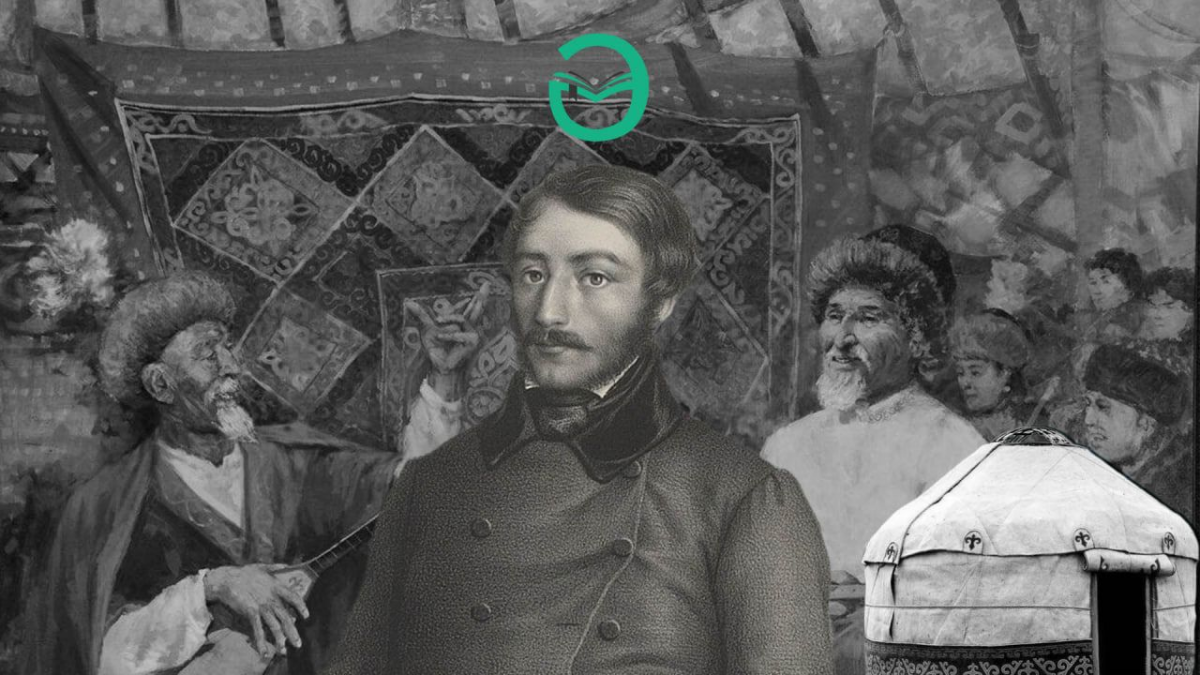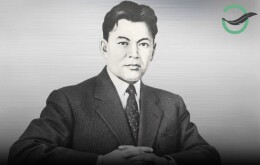Adolf Januszkiewicz was a 19th-century Polish revolutionary who spent significant time in exile in Central Asia, particularly the Kazakh Steppe. During his stay, he authored works like Notes on a Journey through the Kazakh Steppe and Diaries and Letters, which offer valuable insights into Kazakh culture, customs, and figures such as Kunanbai and poetess Zhazyk.
In 1832, Januszkiewicz was sentenced to life exile in Siberia. He arrived in Tobolsk and was restricted from working or relocating freely. However, some Poles in Siberia continued conspiratorial activities, leading to Januszkiewicz's transfer to the Ishim district. After eight years in exile, Januszkiewicz secured a position at the Omsk District Court in 1845. He later worked in the Siberian Kazakhs Department and joined the "Committee for Formulating Kyrgyz Laws." In 1846, he participated in a population census expedition to the Kazakh Steppe, where he recorded his observations. This endeavor resulted in his work Diaries and Letters, also known as Notes on a Journey through the Kazakh Steppe. The remarkable work was first translated into Kazakh in 1979 by Mukash Sarsekeyev.
The significance of Januszkiewicz's writings can be better understood through excerpts from his works. For example, he writes about Kunanbai's wisdom and eloquence in governance:
"Kunanbai is not just a speaking machine; he is like a wound-up clock that can only be stopped by pressing a button. He can talk endlessly from dawn until he retires at night. Guests often come to him seeking advice. He places his hands on his hips, says a few words, and then launches into quotes from Sharia, like a seasoned mullah. His astonishing memory left me in awe. Kunanbai can recite all government decrees and orders as if reading them directly from a book" [2, p. 185].
In one of his writings, Adolf reflects on the Kazakh people, marveling at their eloquence and exceptional oratory skills. He notes with astonishment how this remarkable nation can resolve issues with just a single apt word when needed. For instance, he writes:
"I ponder. I heard all of this with my own ears from the nomadic people who cherish the steppe that the world often labels as wild. A few days ago, I witnessed a heated dispute between two tribes and found myself applauding speakers who had likely never heard of Demosthenes or Cicero. Today, I was spellbound by poets and singers who cannot read or write but displayed incredible talent. Their words left an indelible mark on my soul. Are these the so-called savage predators? Are these people meant solely to herd cattle? No, that is not the case! This is my truth! Such gifted individuals must not be deprived of the benefits of civilization. This nation deserves recognition. These talents will brighten the future of this land. One day, the nomadic people, currently viewed condescendingly by others, will stand confidently among the nations that now look down upon them" [1, p. 79].
Few people remain indifferent to the Kazakh art of oratory, and it is evident that this tradition deeply impressed the Polish poet. He understood that improvisational poetry required profound knowledge and skill. Regarding a young girl named Zhazyk, he wrote:
"Once again, we bowed in admiration of a young girl’s talent. I was struck by the harmony and melody of her improvisational songs. Her mastery of her native language was evident, and her extraordinary sensitivity resonated through her voice. I listened with complete understanding. Perhaps I have never felt such wisdom, even when listening to hymns dedicated to the Virgin Mary. I am angry at myself for my poor command of the Kazakh language, and our interpreters cannot do justice to such beautiful poetry" [2, p. 221].
Additionally, Adolf described his amazement after listening to the poetic duel (aitys) between Zhanak and Orynbai. Even though he did not fully understand the Kazakh language, he was deeply impressed by their skill and creativity.
He also shared his observations on the Kazakh system of governance, its distinctions, and the challenges it faced:
"With the incorporation of Central Asia into the Russian Empire, the khanate system of governance in Asia was abolished. Previously, the Middle Zhuz was ruled by a single khan, but now, seven senior sultans hold power in his place. Just a few hours ago, I witnessed the election of the senior sultan of the Ayagoz district. After a brief open-air council, the tribal leaders and nobles addressed the gathered population. Following the council, Bolen, a poor and modest man, was elected as senior sultan. Interestingly, Barak Sultan, who was far stronger and more influential, was appointed as his assistant" [2, p. 71].
It is, of course, impossible to encapsulate the full significance of a work so rich in valuable insights within a short article. Adolf’s travel writings, brought to Kazakh readers through the translations of Mukash Sarsekeyev and Gabit Zulkarov, were also published in Russian by F. Steklova.












